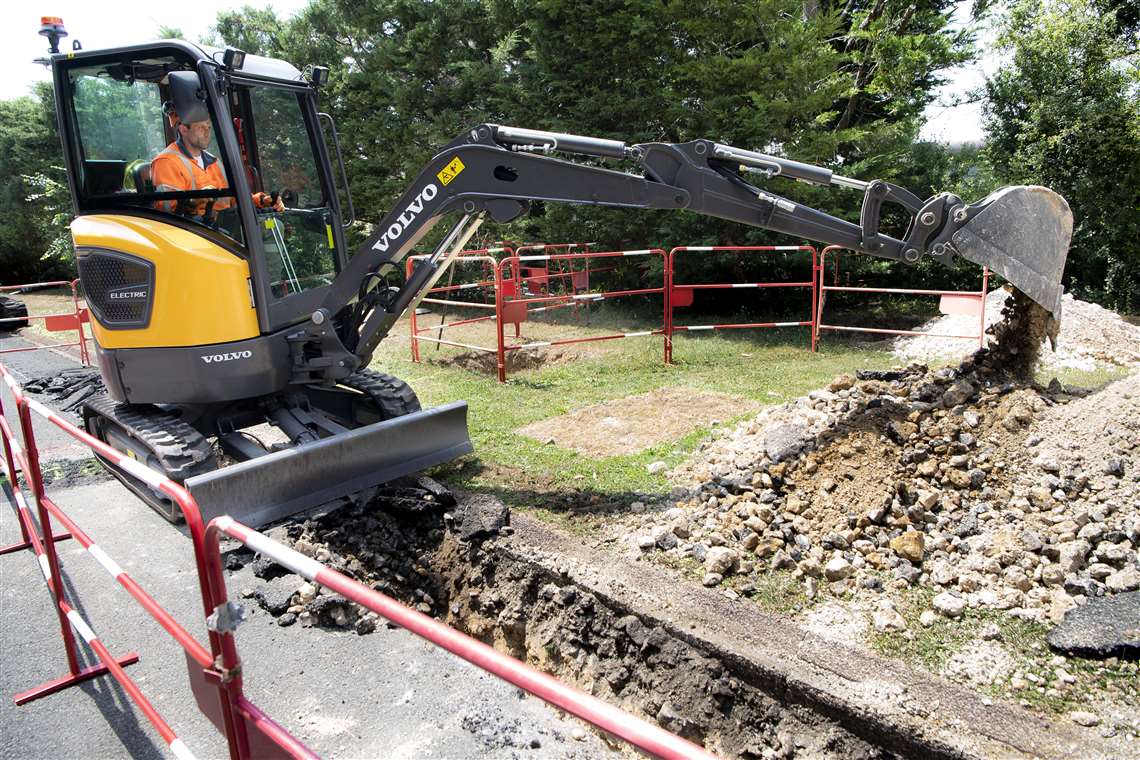First Volvo Electric Compact Excavator Delivered
23 August 2019

Following its unveiling at Bauma 2019, the French contractor Spac, part of the Colas Group, has taken delivery of the first electric Volvo compact excavator, the model ECR25 Electric, for a customer trial. The Volvo ECR25 Electric will be available in selected markets from mid-2020.
Spac, part of the Colas Group, is using the 2.5-tonne excavator to dig trenches at the Saint-Nom-la Bretèche golf course, just outside of Paris, France.
The Volvo ECR25 Electric replaces a combustion engine with 48-volt lithium-ion batteries and an electric motor that powers the hydraulics to move the machine and attachments. The batteries store enough energy to power the machine for eight hours in typical applications, such as utility work. An onboard charger enables overnight charging via a regular household plug socket. A fast charging option, requiring more powerful grid access, will also be available.
“It’s exciting for us to see this machine at a client’s construction site,” says Elodie Guyot, electric compact excavator project manager for Volvo Construction Equipment (Volvo CE). “It’s in a very quiet and peaceful area where residents want that quietness and peacefulness to be respected so it’s crucial to have a machine that meets this need.”
Benjamin Silvent, site manager for Spac says: “For residents and cities in general, it makes our worksites more acceptable because it limits carbon emissions and noise disturbance.”
See the video: https://youtu.be/JZhZsYYQ2Bk
STAY CONNECTED




Receive the information you need when you need it through our world-leading magazines, newsletters and daily briefings.
POWER SOURCING GUIDE
The trusted reference and buyer’s guide for 83 years
The original “desktop search engine,” guiding nearly 10,000 users in more than 90 countries it is the primary reference for specifications and details on all the components that go into engine systems.
Visit Now
CONNECT WITH THE TEAM









